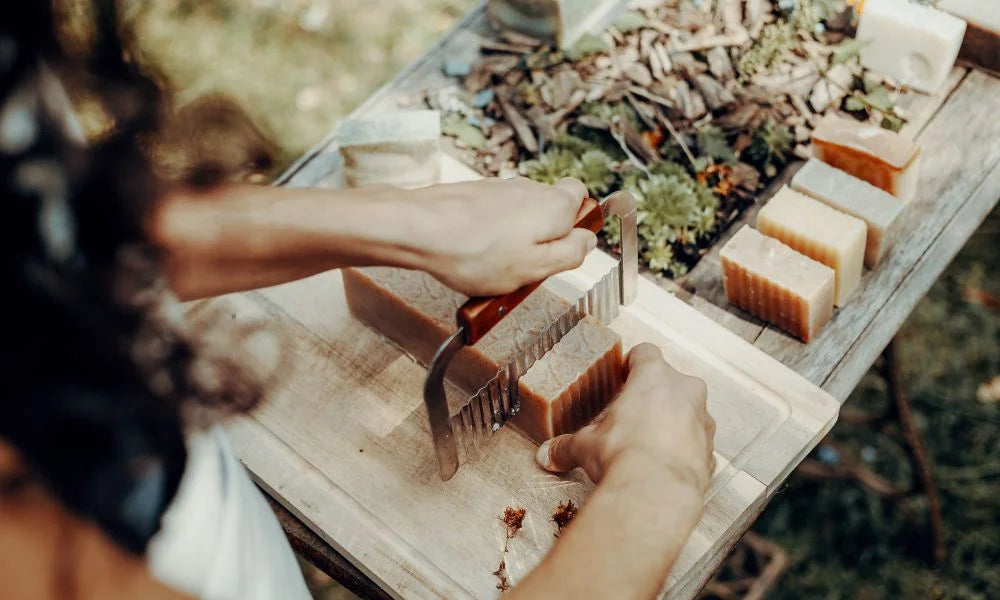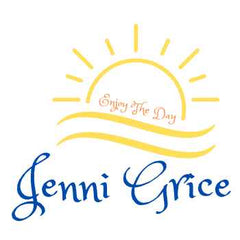
Are you looking to make your skincare routine more sustainable and eco-friendly? Look no further than vegan handmade soap. Not only is it a guilt-free choice for animal lovers, but it also has a myriad of benefits for the environment and your skin.
Vegan handmade soaps are created without the use of any animal by-products, making them cruelty-free and suitable for all skin types. These soaps are made from natural ingredients, such as plant oils, botanical extracts, and essential oils, which are not only gentle on your skin but also biodegradable and sustainable.
By choosing vegan handmade soap, you are not only making a conscious decision to avoid products that harm animals but also reducing your environmental footprint. These soaps are often crafted in small batches using eco-friendly practices that minimize waste and packaging. They are free from synthetic chemicals and harsh detergents, making them better for your skin and the planet.
Make the switch to vegan handmade soap and embrace a skincare routine that is in harmony with nature. Let your beauty routine reflect your values and contribute to a more sustainable future for our planet.
The environmental impact of traditional soap
Traditional soaps often contain animal by-products such as tallow or lard, which are derived from animal fat. The production of these ingredients contributes to deforestation, habitat loss, and greenhouse gas emissions. In addition, the chemicals used in conventional soap production can pollute water sources and harm aquatic life.
When these soaps are used, they can leave residues that are washed down the drain and end up in our water systems. These residues can have detrimental effects on the environment, including disrupting the balance of ecosystems and harming marine life. By choosing vegan handmade soap, you can help mitigate these environmental impacts.

Benefits of using vegan handmade soap
Vegan handmade soaps are created without the use of any animal by-products, making them cruelty-free and suitable for all skin types. These soaps are made from natural ingredients, such as plant oils, botanical extracts, and essential oils, which are not only gentle on your skin but also biodegradable and sustainable.
One of the key benefits of using vegan handmade soap is that it retains the natural glycerin produced during the soap-making process. Glycerin is a humectant that attracts moisture to the skin, keeping it hydrated and nourished. Commercial soaps often remove glycerin and replace it with synthetic chemicals, which can strip the skin of its natural oils and cause dryness and irritation.
Vegan handmade soaps are also free from synthetic fragrances, dyes, and preservatives that can irritate sensitive skin. They are often enriched with natural ingredients such as shea butter, coconut oil, and aloe vera, which provide additional moisturizing and soothing properties. These soaps can help improve the overall health and appearance of your skin, leaving it soft, supple, and radiant.
Ingredients to avoid in conventional soap
When choosing a soap, it is important to be aware of the ingredients used in its production. Conventional soaps often contain ingredients that can be harmful to both your skin and the environment. Some of the common ingredients to avoid include:
1. Parabens: These synthetic preservatives can disrupt hormonal balance and have been linked to reproductive issues.
2. Sulfates: These harsh detergents can strip the skin of its natural oils and cause dryness and irritation.
3. Synthetic fragrances: These can contain a cocktail of chemicals, including phthalates, which have been linked to hormone disruption and allergic reactions.
4. Palm oil: The production of palm oil has been a major driver of deforestation, leading to habitat loss for endangered species such as orangutans.
By choosing vegan handmade soap, you can avoid these harmful ingredients and opt for a cleaner and safer alternative for your skin.
The process of making vegan handmade soap
Vegan handmade soaps are crafted using a traditional cold process method. This method involves mixing fats or oils with an alkali, such as sodium hydroxide, to create a chemical reaction called saponification. During this reaction, the fats or oils are transformed into soap and glycerin.
The soap mixture is then poured into molds and left to cure for several weeks. This curing process allows the soap to harden and the excess water to evaporate, resulting in a long-lasting and mild bar of soap. The use of natural ingredients, such as plant oils and botanical extracts, ensures that the soap is gentle on the skin and provides nourishment and hydration.
The handmade nature of these soaps allows for creativity and customization. Soap makers often incorporate natural colorants, such as clays, herbs, and spices, to add visual appeal to their products. They may also infuse the soap with essential oils to provide natural fragrance and therapeutic benefits.

Sustainable packaging options for vegan handmade soap
In addition to the environmentally friendly ingredients used in vegan handmade soap, the packaging is also an important consideration. Many soap makers are conscious of the impact of plastic waste and opt for sustainable packaging alternatives.
One popular packaging option is the use of recycled or biodegradable materials. Soap bars can be wrapped in recycled paper or packed in compostable or biodegradable cellulose bags. These packaging materials break down naturally over time, reducing the amount of waste that ends up in landfills or oceans.
Another eco-friendly packaging option is the use of refillable or reusable containers. Soap bars can be sold without any packaging and customers can bring their own containers to refill their soap. This reduces the need for single-use packaging and encourages a circular economy where resources are used more efficiently.
Supporting ethical and sustainable soap brands
When choosing vegan handmade soap, it is important to support ethical and sustainable soap brands. Look for brands that prioritize transparency and provide information about their sourcing and production practices. Consider supporting small-scale soap makers who craft their products in small batches using eco-friendly practices.
You can also look for certifications and labels that indicate a brand's commitment to sustainability. For example, the Leaping Bunny logo ensures that the product is cruelty-free and not tested on animals. The USDA Organic seal guarantees that the soap is made with organic ingredients.
By supporting ethical and sustainable soap brands, you are not only making a positive impact on the environment but also contributing to the livelihoods of small-scale artisans who are passionate about creating high-quality and eco-friendly products.
Choosing vegan handmade soap for a greener skincare routine
Vegan handmade soap is the eco-friendly choice for a sustainable skincare routine. By choosing these soaps, you are making a conscious decision to avoid products that harm animals and reduce your environmental footprint.
Vegan soaps are crafted from natural ingredients, making them gentle on your skin and biodegradable. They are free from synthetic chemicals and harsh detergents, providing a safer and healthier option for your skincare routine.
In addition, vegan handmade soaps are often produced using eco-friendly practices that minimize waste and packaging. By supporting ethical and sustainable soap brands, you can contribute to a more sustainable future for our planet.
Final Thoughts:
Make the switch to vegan handmade soap and let your beauty routine reflect your values. Embrace a skincare routine that is in harmony with nature and take a step towards a greener and more sustainable future. Your skin and the environment will thank you for it.

Disclaimer :
The information provided on The Smelly Panda Soap Company site and in our articles is for informational purposes only. We are not medical professionals, and the content we provide should not be considered a substitute for professional medical advice, diagnosis, or treatment. Always seek the advice of your physician or another qualified healthcare provider with any questions you may have regarding a medical condition. Never disregard professional medical advice or delay in seeking it because of something you have read on The Smelly Panda.
The Smelly Panda Soap Company and its authors do not endorse or recommend any specific tests, physicians, products, procedures, opinions, or other information that may be mentioned on the website. Reliance on any information provided by The Smelly Panda Soap Company is solely at your own risk.
While we strive to provide accurate and up-to-date information, The Smelly Panda Soap Company makes no representations or warranties of any kind, express or implied, about the completeness, accuracy, reliability, suitability, or availability of the information contained on the website or in our articles. Any reliance you place on such information is therefore strictly at your own risk.
In no event will The Smelly Panda Soap Company or its authors be liable for any loss or damage, including without limitation, indirect or consequential loss or damage, or any loss or damage whatsoever arising from loss of data or profits arising out of, or in connection with, the use of this website.
Through this website, you may be able to link to other websites that are not under the control of The Smelly Panda Soap Company. We have no control over the nature, content, and availability of those sites. The inclusion of any links does necessarily imply a recommendation or endorsement of the views expressed within them.
Every effort is made to keep the website up and running smoothly. However, The Smelly Panda Soap Company takes no responsibility for, and will not be liable for, the website being temporarily unavailable due to technical issues beyond our control.
Please note that the content on The Smelly Panda may be updated or modified without notice, and we do not guarantee the accuracy, relevance, or timeliness of the information provided.
By using The Smelly Panda, you acknowledge and agree to the terms of this disclaimer. If you do not agree with this disclaimer or any part of it, we kindly ask that you refrain from using our website.


